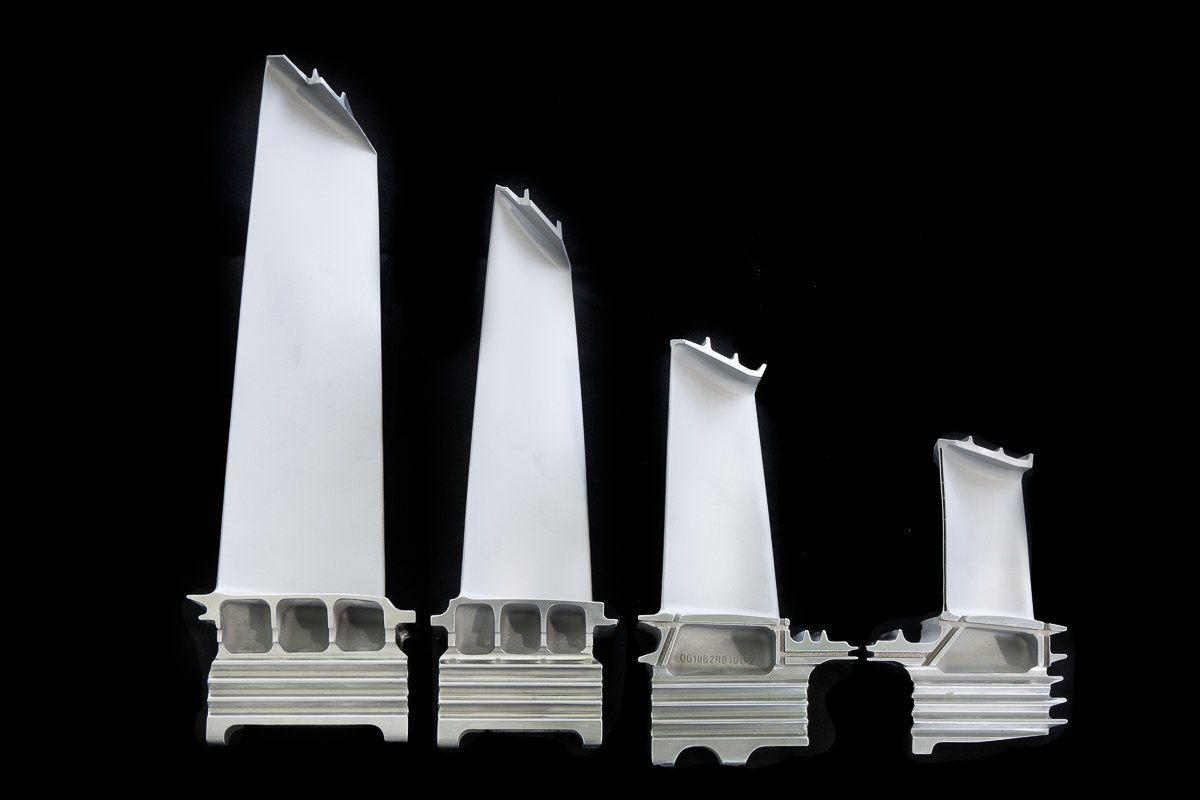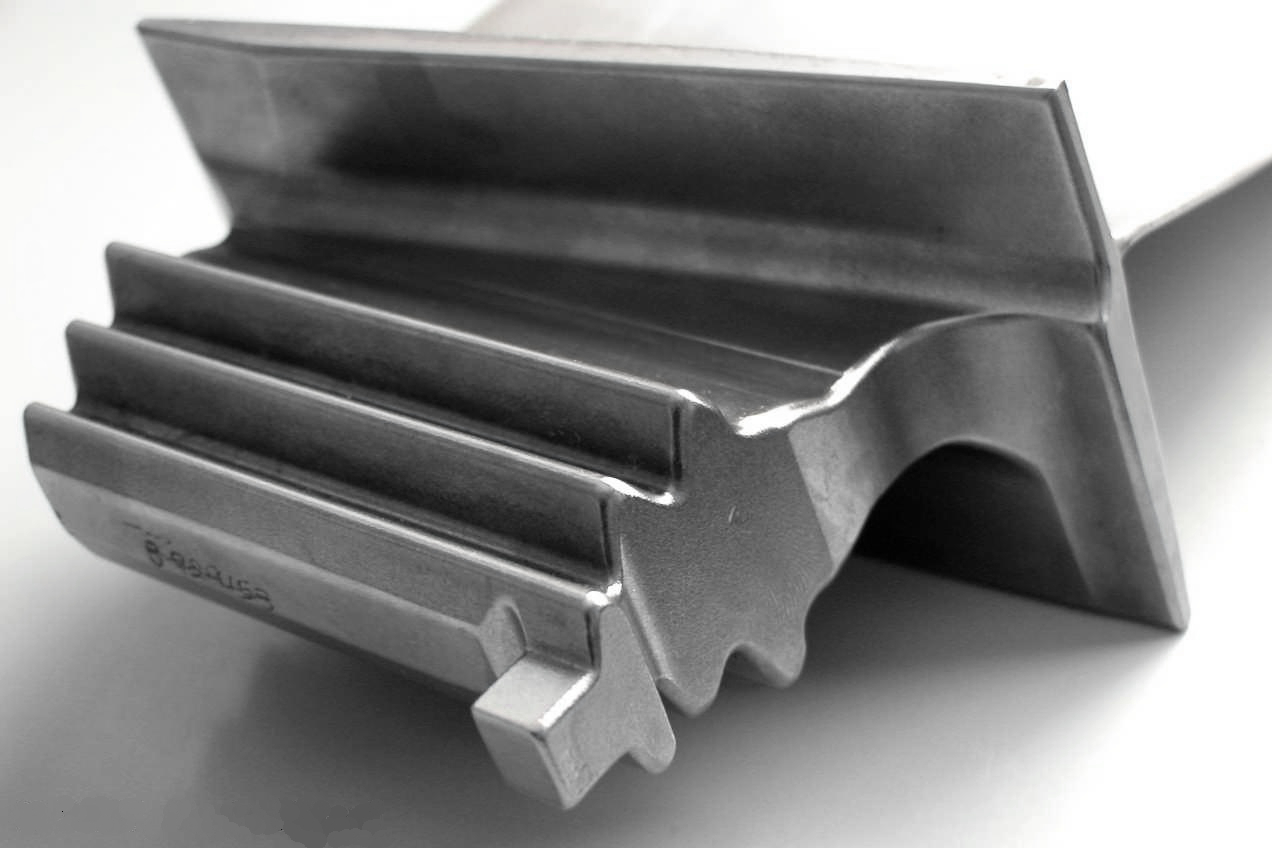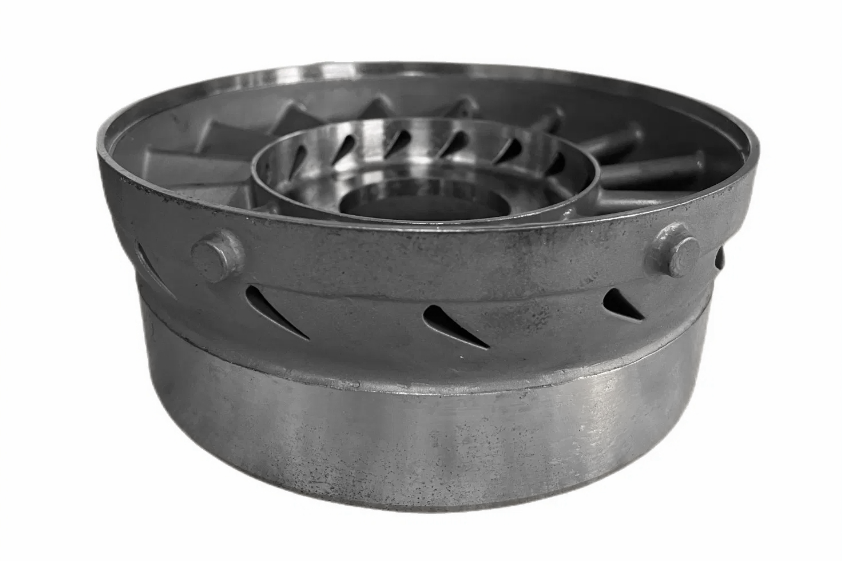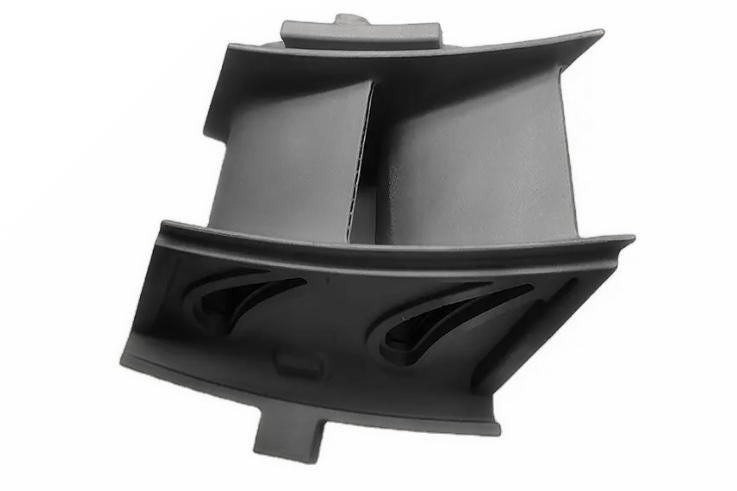TMS-162
About TMS-162 Superalloy
Name and Equivalent Name
TMS-162 is a fourth-generation nickel-based single-crystal superalloy. Although it does not have an exact equivalent, it aligns with other advanced alloys like CMSX-10 and René N6, designed for extreme operating conditions. TMS-162 is known for its high thermal resistance and fatigue strength, making it ideal for aerospace and power applications.
TMS-162 Basic Introduction
TMS-162 is a single-crystal superalloy developed to meet the demands of high-performance aerospace engines and gas turbines. Its exceptional thermal and mechanical properties enable it to operate reliably under extreme stress and high temperatures. With superior fatigue resistance, it ensures long-lasting performance in applications that require materials to withstand frequent temperature fluctuations.
This alloy’s ability to maintain structural integrity at temperatures above 1100°C makes it a top choice for jet engine components, turbine blades, and other critical parts. TMS-162’s high yield strength and fracture toughness further enhance its reliability in demanding environments, ensuring safe and efficient operation over extended periods.

Alternative Superalloys of TMS-162
TMS-162 competes with advanced alloys such as CMSX-10 and René N6. While CMSX-10 offers similar creep and fatigue resistance, TMS-162 improves high-temperature performance. René N6, another alternative, offers excellent oxidation resistance, but TMS-162 surpasses it in terms of thermal fatigue resistance. In less demanding environments, alloys like CMSX-4 or PWA 1484 could be considered alternatives, though they lack the advanced capabilities of TMS-162.
TMS-162 Design Intention
TMS-162 was designed to address the limitations of previous-generation alloys by enhancing creep strength, fatigue resistance, and thermal stability. The alloy’s single-crystal structure eliminates grain boundaries, reducing the risk of creep deformation under prolonged stress. Key additions, such as tungsten and rhenium, improve mechanical strength and thermal resistance, making TMS-162 suitable for components exposed to extreme environments with frequent thermal cycling.
TMS-162 Chemical Composition
The elements in TMS-162 contribute to its exceptional mechanical and thermal properties. Cobalt enhances thermal stability, tungsten strengthens the matrix, and rhenium improves creep resistance.
Element | Weight % |
|---|---|
Nickel (Ni) | Balance |
Chromium (Cr) | 4.5% |
Cobalt (Co) | 7% |
Molybdenum (Mo) | 1.5% |
Tungsten (W) | 10% |
Aluminum (Al) | 5% |
Tantalum (Ta) | 6.5% |
Rhenium (Re) | 5.5% |
TMS-162 Physical Properties
TMS-162 offers a combination of excellent mechanical strength and thermal stability, making it suitable for demanding applications.
Property | Value |
|---|---|
Density | 8.6 g/cm³ |
Melting Point | 1350°C |
Thermal Conductivity | 10.6 W/(m·K) |
Modulus of Elasticity | 214 GPa |
Tensile Strength | 1105 MPa |
Metallographic Structure of TMS-162 Superalloy
The microstructure of TMS-162 features a gamma (γ) matrix reinforced with gamma-prime (γ') precipitates. The γ' phase, which includes nickel, aluminum, and tantalum, enhances the alloy’s mechanical strength and resistance to creep by limiting dislocation movement.
This uniform microstructure ensures stability under thermal cycling, making TMS-162 ideal for jet engines and gas turbines. Its ability to maintain performance under extreme stress is critical for extending the service life of high-performance components.
TMS-162 Mechanical Properties
TMS-162 excels in mechanical performance, offering high tensile strength, fatigue resistance, and excellent thermal stability.
Property | Value |
|---|---|
Tensile Strength | ~1250 MPa |
Yield Strength | ~1080 MPa |
Creep Strength | Excellent at 1100°C |
Fatigue Strength | ~600 MPa |
Hardness (HRC) | 40-45 |
Elongation | ~10-12% |
Modulus of Elasticity | ~230 GPa |
Key Features of TMS-162 Superalloy
Superior Creep Resistance TMS-162 offers exceptional creep resistance, maintaining mechanical integrity under high stress and extreme temperatures.
High Thermal Fatigue Resistance The alloy is designed to endure frequent thermal cycling, ensuring reliable performance in jet engines and gas turbines.
Single-Crystal Structure With no grain boundaries, TMS-162 provides enhanced fatigue strength, reducing the risk of creep deformation.
Long Service Life TMS-162 offers excellent durability, minimizing maintenance needs and extending component lifespans in high-performance systems.
Outstanding Thermal Stability The alloy maintains structural stability at temperatures beyond 1100°C, ensuring efficiency and safety in extreme environments.
TMS-162 Superalloy’s Machinability
TMS-162 is suitable for Vacuum Investment Casting due to its complex geometry and need for tight tolerances, ensuring structural integrity in high-stress environments.
It is optimized for Single Crystal Casting, leveraging its single-crystal structure to prevent grain boundary defects, which enhances fatigue resistance.
Equiaxed Crystal casting is not ideal for TMS-162, as this alloy’s performance depends on eliminating grain boundaries for superior fatigue and creep resistance.
While Superalloy Directional Casting can be used, single-crystal casting is preferred for unlocking TMS-162’s full potential.
TMS-162 is not suitable for Powder Metallurgy Turbine Discs due to the need for single-crystal integrity, which powder metallurgy cannot achieve.
Superalloy Precision Forging is not recommended as it could compromise the single-crystal structure, reducing mechanical performance.
TMS-162 is not yet compatible with Superalloy 3D Printing, as current additive manufacturing techniques cannot replicate the necessary single-crystal characteristics.
CNC Machining is feasible with TMS-162, although specialized tools and techniques are required to manage its hardness and maintain precision.
Superalloy Welding poses challenges due to potential microstructure defects, which could affect long-term performance.
Hot Isostatic Pressing (HIP) is essential for TMS-162, eliminating internal voids and enhancing mechanical strength and reliability.
TMS-162 Superalloy Applications
In Aerospace and Aviation, TMS-162 is used in turbine blades and jet engines, ensuring durability and performance under extreme temperatures.
For Power Generation, TMS-162 supports gas turbines, maintaining efficiency at elevated temperatures over extended operational cycles.
In the Oil and Gas industry, TMS-162 provides corrosion resistance and mechanical strength for components exposed to extreme environments.
The Energy sector utilizes TMS-162 for advanced power systems that demand high thermal stability and long-term reliability.
In marine applications, TMS-162 ensures the propulsion system's efficiency by withstanding harsh maritime conditions.
Mining equipment benefits from TMS-162’s resistance to wear and high-temperature environments.
In Automotive applications, TMS-162 is used in high-performance engines that require enhanced thermal resistance and mechanical strength.
Chemical Processing industries rely on TMS-162 for reactors and heat exchangers, where corrosion resistance and thermal stability are critical.
The Pharmaceutical and Food industries use TMS-162 in sterilization equipment due to its resistance to corrosion and high temperatures.
In Military and Defense, TMS-162 supports high-performance systems by providing durability in extreme conditions.
In Nuclear applications, TMS-162 ensures reliability under long-term exposure to radiation and extreme temperatures.
When to Choose TMS-162 Superalloy
TMS-162 is ideal for custom superalloy parts that require exceptional fatigue resistance and thermal stability. It is primarily used in aerospace, power generation, and energy industries, where components must withstand high temperatures and thermal cycling. TMS-162 excels in turbine blades, jet engines, and reactors, offering long service life with minimal maintenance. This alloy ensures reliable performance under extreme stress, making it the optimal choice for critical systems in harsh environments.




